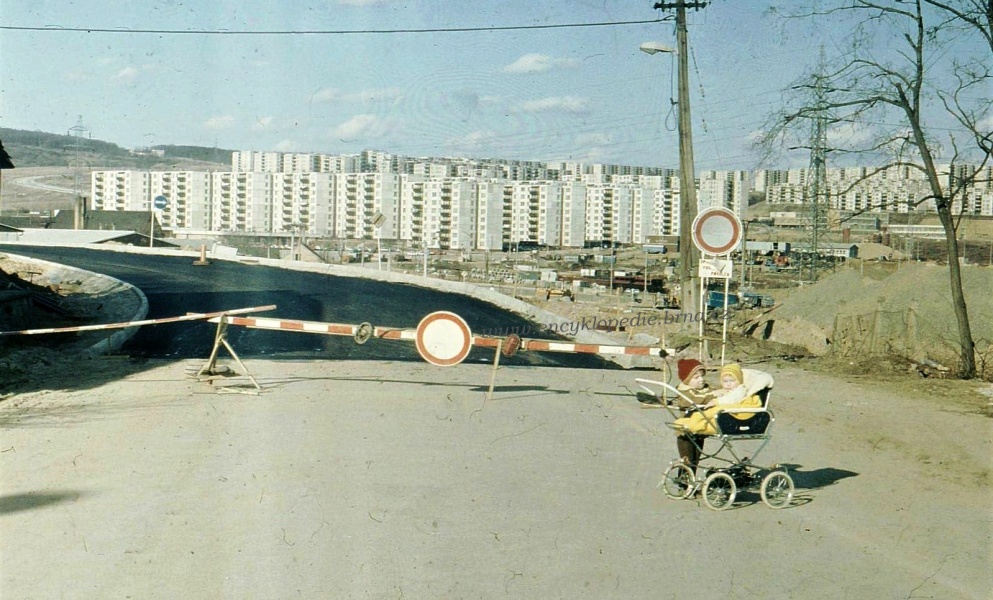Filip Hráček / text /
Respectfully, socialism is a bad idea
I grew up in actual socialism, behind the Iron Curtain, and I find it a little bit worrying to see all these cool people promoting socialism these days.

Let me be clear. I’m not talking about “socialism” in the sense of “universal healthcare is somehow socialism” or “Sweden is a socialist country”. That’s insane. What people mean to say in these circumstances isn’t “socialism”. It’s “a bit of social democracy”. If you’re reading this hoping that I’ll bash the ability of many countries to address some of their social issues using government resources, you’ll be disappointed.
When I say “socialism”, I mean it in the sense that it has or had in actual socialist countries, like the Czechoslovak Socialist Republic in which I was born. This is the socialism that doesn’t trust citizens to think for themselves, that needs to jail opposition to stay in power, that prevents people from leaving the country by installing inward-facing border patrols, that harasses and beats and imprisons people who are too different (including homosexuals or just people who like a different hairstyle than the norm), etc. All these things were actually happening in Czechoslovakia between 1948 and 1989, and — as far as I know — they are still happening in socialist countries today.
When I see people in the West glorifying socialism and communism, it’s a mixed feeling. On one hand, I get it. Things aren’t great in capitalism, are they. Especially not in the hyper-capitalism that has taken root in places like the United States. It’s tempting, intellectually, to just overthrow the whole shebang and start with something radically different. Why would you try to reform something that’s seemingly the root of all evil instead of just replacing it with the opposite of that? This was the Hegelian approach of Marx, and later Lenin. A hundred years ago, communists wanted an anti-thesis to the status quo, not a continuous improvement. And today, it’s the same.
The problem is — and please take it from someone who actually lived in a socialist country, whose parents lost most of their lifetimes to a totalitarian regime, and who knows people who still live in socialist countries today — the problem is that it doesn’t work. The theory makes you feel good. But the reality is really, really ugly.

Socialism, as an idea, is easy to love. Instead of relentless, brutal competition, where many people’s lives are doomed to be miserable almost from their birth, let’s create a society where everyone thrives.
But the idea has been tried and does not have a good track record. On countless occasions, it led to a few years of seeming success, then either collapse or long decades of totalitarian regimes where the “dictatorship of the proletariat” was slowly making living conditions even worse than before while keeping dissenting voices silent and removing more and more freedoms. During socialism, people in my country couldn’t leave, they couldn’t study subjects they wanted, they couldn’t criticize the government (even in private settings because of citizen spies), they couldn’t start small businesses, they couldn’t protest, they couldn’t disagree with anyone who had ties to the (only) ruling party, the Communist Party. They also, by the way, lived in significantly worse conditions than people in the capitalist West — even when adjusting for Purchasing Power Parity (source).

I know this is something nobody wants to hear but the only way forward is the hard way. There’s no magic bullet. No magic state arrangement, no magic policy, no magic technology, no magic set of rules, laws or bans.
Human existence can be really, really shitty. Some things are only very slowly becoming a little less shitty (maybe not in your area or mine, but globally). Other things are now shittier than before. Dealing with that is not pleasant or easy. But trying to solve this thing with some kind of societal Uno Reverse card that has a history of making whole countries miserable for decades is not the solution we need.
— Filip Hráček, June 2024
PS: Since publishing this post, I've had new discussions with, and watched videos by, actual modern socialists. (Again, not “social democrats”, but “socialists”.) As I said in the beginning of this post, they are cool people. They seem to argue in good faith and they are passionate about changing society for the better. I have enormous respect for them. That said, they don’t seem to fact-check themselves. For example, there’s this video that seems to suggest that democracy in Cuba (a socialist country) is working great. That doesn’t agree with what’s actually happening in the country. Human Rights Watch said this about Cuba in 2022: “The Cuban government continues to repress and punish virtually all forms of dissent and public criticism. At the same time, Cubans continue to endure a dire economic crisis, which impacts their social and economic rights.” You can read details here. Also, just looking at the amount of asylum seekers coming from Cuba seems to suggest that there’s something about Cuba that makes all these people leave? Similarly, when you read about socialism on socialism101.com, they say that “plenty of [attempts at socialism] succeeded. In most places where you've heard of there being a socialist revolution, material conditions have massively improved.” But they don’t say where! Which places are they talking about? Definitely not my home country, Czechoslovakia, right? I hope they don’t mean any country in the Eastern Bloc. Do they mean USSR? North Korea? If so, for whom did material conditions improve? It’s just, I don’t know... Look. I don’t want to dissuade anyone from learning about socialism. Do read books by Marx or Lenin or Mao. Do listen to what the Cuban government tells you about their democracy. But also, do fact check that stuff with what actually happened, and what’s actually happening. If it was just one failed attempt at socialism, maybe I’d shut up. Maybe Czechoslovakia was just unlucky. But there are many examples, all over the world, throughout the last 100 years, including now.
— Filip Hráček
June 2024
